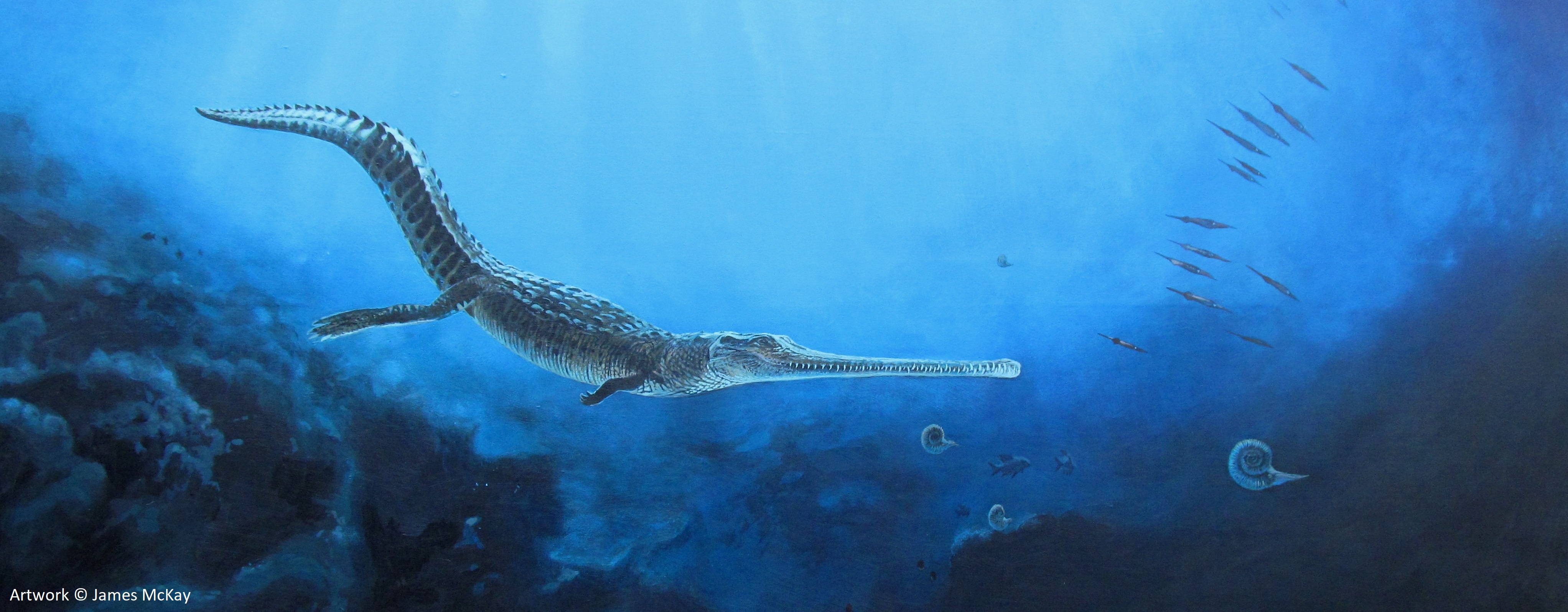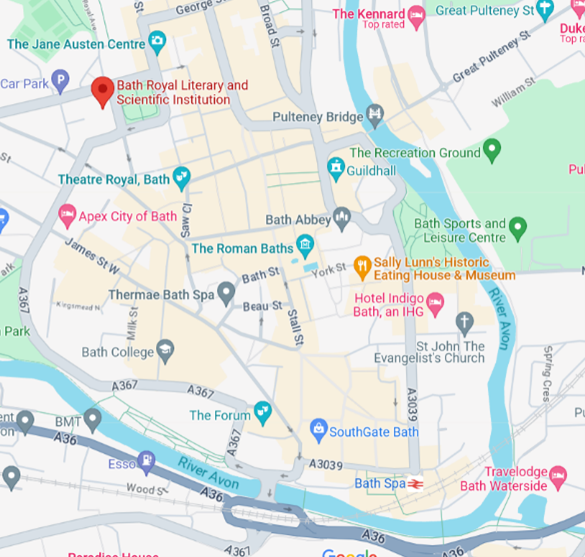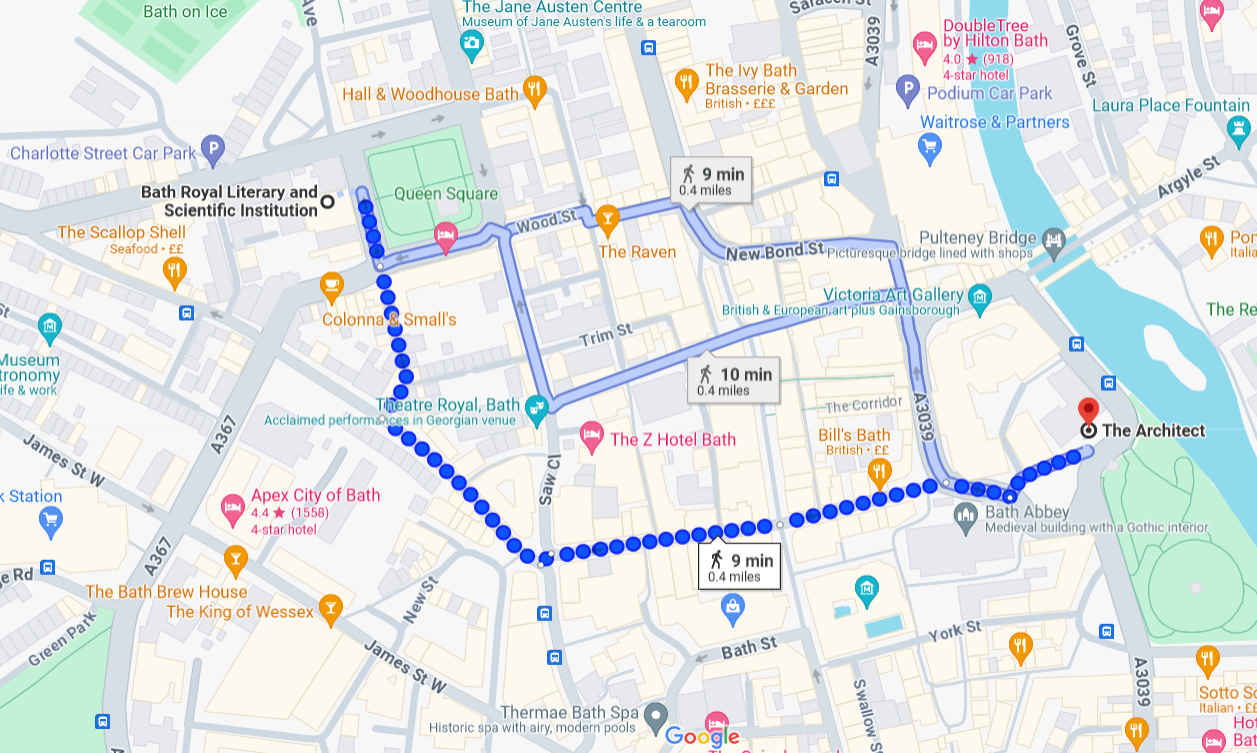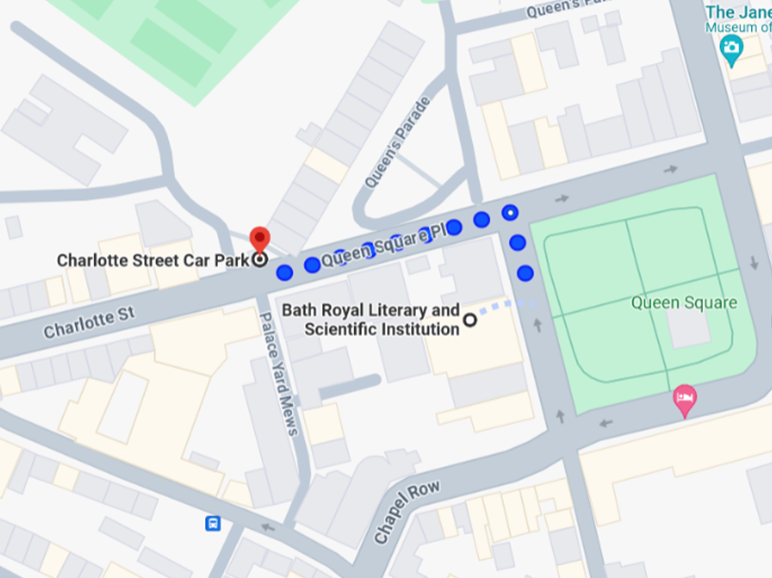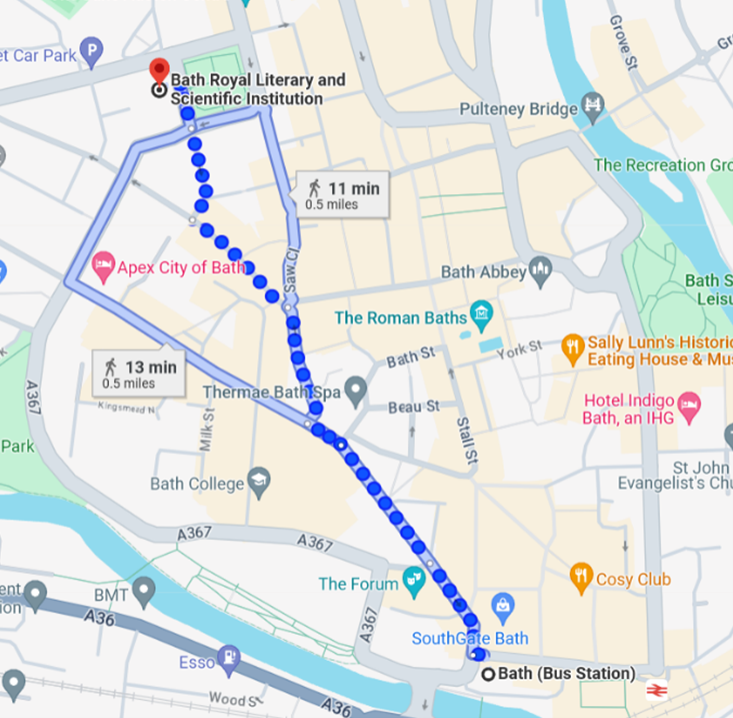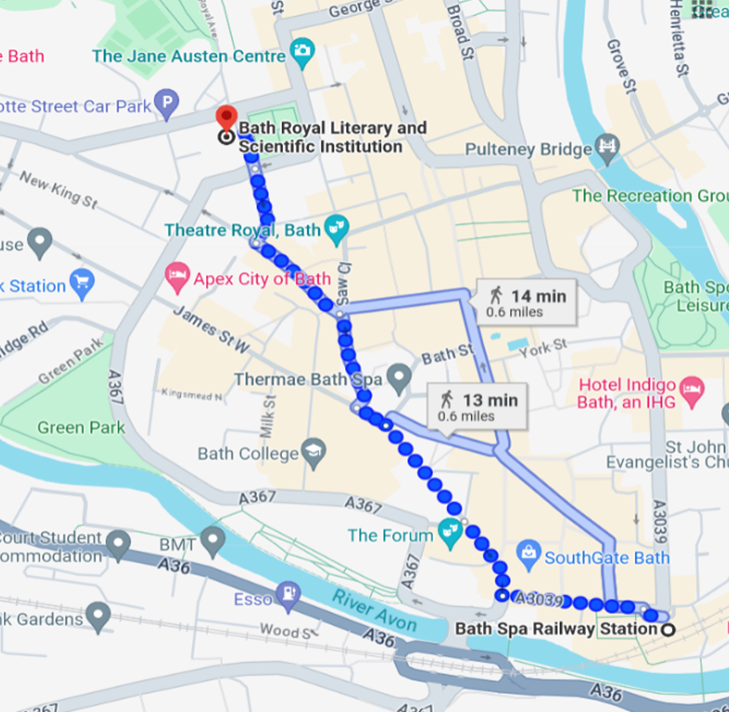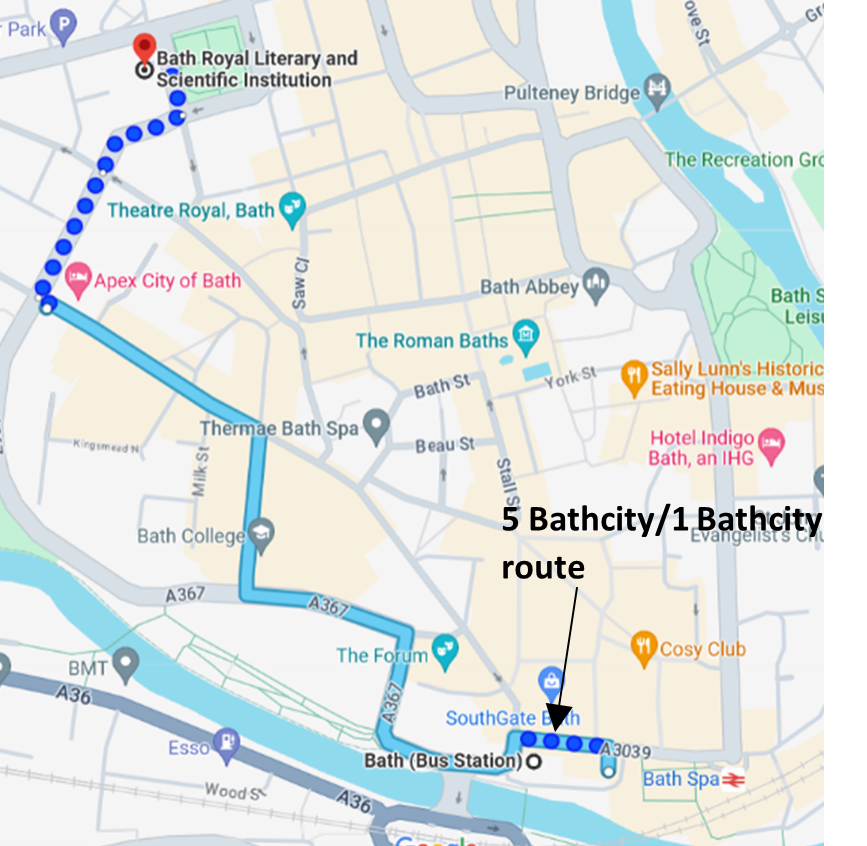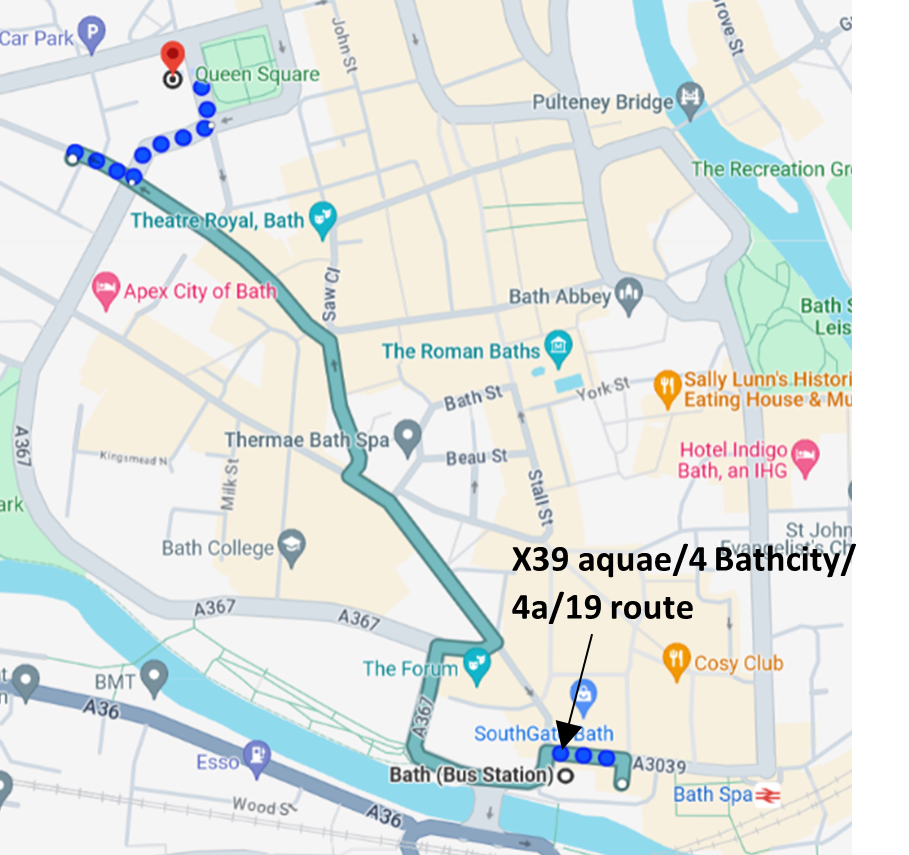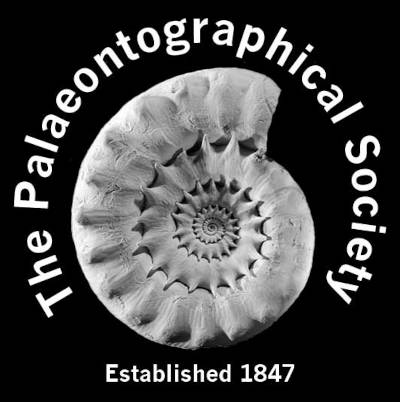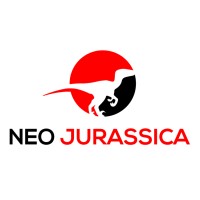Abstract book
The abstract booklet for the Symposium on Toarcian Palaeobiology 2024 is now available to download from the link below
Symposium on Toarcian Palaeobiology Abstract Booklet
Bath, UK
17th – 20th June 2024
The Symposium on Toarcian Palaeobiology is an opportunity to platform the diversity of global Toarcian palaeontological research by spotlighting underrepresented fields such as the marine benthos, the terrestrial realm, and the ecological impacts of the Toarcian Oceanic Anoxic Event, alongside popular fields including ammonites and marine reptiles.
Organisers: Meghan Jenkinson, Crispin Little, Matt Williams, Mark Evans, The Geological Collections Group
Contact: Meghan Jenkinson
We now welcome registration and submission of abstracts for oral presentations and posters.
|
Timeline |
|
|
16th February 2024 |
Registration open |
|
17th May 2024 |
Deadline for abstract submission and registration for presenters |
|
24th May 2024 |
Decisions sent to presenters and third circular distributed |
|
5th June 2024 |
Deadline for non-presenting delegates (subject to strict limit on number of registered delegates) |
|
10th June 2024 |
Release of programme, abstract booklet, and final announcements |
|
17th – 20th June 2024 |
Symposium on Toarcian Palaeobiology! |
Overview
Keynote speakers
We are excited to announce our keynote speakers:
Dr Michela Johnson is a postdoctoral researcher at the Staatliches Museum für Naturkunde Stuttgart working on Toarcian teleosauroid crocodiles.
Emily Swaby is a postgraduate research student at the Open University working on Toarcian insects.
Professor Emese Bordy is a sedimentologist at the University of Cape Town working on Toarcian
vertebrate ichnology in the Karoo Basin.
Travel bursaries
Bursaries of up to £100 are available to assist with the cost of travel to Bath for delegates presenting (as first author) either a talk or a poster. These are available to students, early career researchers, and colleagues from low socioeconomic backgrounds. Funds will be distributed on a needs basis and the actual amount received will depend on the number of applicants and distance travelled.
The Geological Collections Group are also offering financial support of up to £100 to two presenting members of their society who are not currently employed by an institution and/or do not receive any external funding to attend events such as this. Successful applicants of GCG travel bursaries will be asked to provide either a write-up of the meeting as a blog post, or a newsletter article about their attendance at the meeting.
All bursaries will be paid in cash at the meeting, upon submission of receipts, not as an advance payment. These are intended to contribute to the expenses of travel to and from the meeting, but not a full reimbursement of all expenses (accommodation, registration). Interested presenting delegates eligible for a travel bursary should contact Meghan Jenkinson (symposium chair;
Talks
There are 26 available talk slots. Each talk has an allocated 20-minutes comprising 15-17 minutes of presentation and 3 minutes for questions. Strict time keeping will be in force, so speakers are kindly asked to stick to time to allow for questions and changing of speakers. Speakers who overrun may be unable to take questions, or we may ask that you end your talk before you have finished.
There will be no lightning talks or live virtual talks at the symposium.
Please prepare your talk as a slideshow in Windows PowerPoint. If you are using a Mac please check that your presentation works on a Windows PC before the meeting, as this is the system we will be projecting from. Please use standard fonts built into PowerPoint and avoid using imported fonts as these don’t always work when presentations are transferred between systems.
Food & Drink
The registration cost covers the welcome reception at the BRLSI on 17th June, refreshments at the poster session, and all tea and coffees.
Lunches for the whole conference will be self-foraging. Delegates may bring their own lunch to the BRLSI, although we recommend taking the time to get lunch with fellow colleagues in the city. There is an abundance of local cafes, sandwich shops, pubs, and restaurants within 5 minutes walking distance of BRLSI. A one-hour lunch slot is scheduled on both Tuesday 18th and Wednesday 19th June, with an additional one-hour slot for the workshops. Delegates who do not wish to attend the workshops are encouraged to continue socialising with colleagues. The meeting will resume promptly at 14:00 each day.
On Thursday 20th June the schedule will be more relaxed, and delegates are welcome to eat their lunch when they so wish. Delegates are asked not to bring lunch to the BRLSI on this day to avoid accidental contamination of specimens.
Accommodation
Bath is a very popular tourist destination during the summer months, so we recommend booking accommodation as soon as possible to avoid disappointment. A wide variety of affordable accommodation is available in Bath city centre, including the Premier Inn Bath and Travelodge Bath City Centre which are both a 5-minute walk away from the BRLSI. The Symposium on Toarcian Palaeobiology is not endorsed by any local accommodation.
Code of conduct
All delegates are expected to abide by the Geological Collections Group Code of Conduct and Social Media Policy whilst attending the meeting. This relates to behaviour both physically at the event and online via any and all GCG platforms.
Accessibility
The BRLSI is located at 16 - 18 Queen Square, Bath, BA1 2HN. Entry to the BRLSI for the duration of the symposium will be via the main door at number 16 Queen Square. Step free entry is available via the door at number 18. Here there is a lift and a disabled toilet with changing facilities. All rooms (Elwin, Lonsdale, Duncan) are situated on the first floor and accessible access can be gained via the lift at door 18. Unfortunately, there is currently no step-free access to the ground floor exhibition space.
Childcare will not be provided at the symposium, but there are multiple local childcare options in central Bath. Breastfeeding facilities are available at the Bath Children and Family Centre which is a two-minute walk from the BRLSI. Address 12 Charlotte Street, Bath BA1 2NE.
Cancellation and insurance
The organisers of the Symposium on Toarcian Palaeobiology are committed to hosting a safe in-person meeting. Although we hope that COVID-19 will not be an issue for the meeting, we will operate in accordance with any health and hygiene regulations set out by the UK government and the BRLSI during the meeting. The organisers will take steps to mitigate against the transmission of COVID-19 and masking will be encouraged at the event. Should the organisers need to cancel the event due to either COVID-19 or any other circumstances, full reimbursements of registration and dinner costs will be made. Delegates will be informed of any changes as soon as possible. Therefore, we recommend that any travel and accommodation booked is fully refundable in the unlikely event that the meeting is cancelled.
Presenting delegates forced to withdraw at short notice due to illness or other circumstances will be offered the opportunity to submit a pre-recorded talk up to 12 minutes in length which will be played during their scheduled slot. Poster presenters forced to withdraw will have the option of couriering their poster to the BRLSI for display as part of the poster session. All posters will be available to delegates on the GCG website after the conference. Unfortunately, virtual attendance will not be available for delegates forced to withdraw.
The symposium committee, GCG, and BRSLI cannot accept liability for personal accident, loss, or damage to private property which may occur as a result of attendance and participation in the meeting.
Schedule
Welcome reception
The welcome reception will be held in the evening on Monday 17th June in the Lonsdale Room at the Bath Royal Literary & Scientific Institute. Attendance to the opening reception is included in the registration fee.
Delegates are invited to arrive from 18:30 BST to register and collect their delegate packs. The welcome event will take place from 19:00 until 20:30 BST and will involve two activities in the separate room. Delegates are invited to mingle with colleagues in the Duncan Room, whilst at 19:30 BST an icebreaker quiz will be held in the Lonsdale Room. A selection of alcoholic and non-alcoholic drinks will be available along with an assortment of nibbles at the welcome reception. Please notify us of all dietary requirements upon registration.
After the welcome reception delegates are encouraged to find their own dinners in Bath and continue conversations with colleagues.
Scientific sessions
All sessions will be held in the Elwin Room at the Bath Royal Literary & Scientific Institute. The Elwin Room is situated on the 1st floor of the BRLSI. It is fully wheelchair accessible via the lift inside the entrance at number 18 Queen Square.
A rough timetable for the two days of scientific sessions is outlined below. A finalised timetable with information on speakers and session themes will be circulated closer to the meeting date.
Tuesday 18th June
|
09:00 - 09:30 |
Elwin Room |
Registration & refreshments |
|
09:30 - 10:30 |
Elwin Room |
Session 1 - Opening remarks & two talks |
|
10:30 - 11:00 |
|
Break |
|
11:00 - 12:00 |
Elwin Room |
Session 2 – Three talks |
| 12:00 - 13:00 | Lunch (self-foraging) | |
|
13:00 - 14:00 |
Lonsdale Room |
Ammonoid Biochronology Workshop |
|
14:00 - 15:00 |
Elwin Room |
Session 3 – Three talks |
|
15:00 - 15:30 |
|
Break |
|
15:30 - 16:10 |
Elwin Room |
Session 4 – Two talks |
|
16:10 - 17:00 |
Elwin Room |
Keynote speaker |
|
17:00 |
Pub |
Wednesday 19th June
|
09:00 - 09:30 |
Elwin Room |
Registration & refreshments |
|
09:30 - 10:30 |
Elwin Room |
Session 1 – Three talks |
|
10:30 - 10:55 |
|
Break |
|
10:55 - 11:15 |
Elwin Room |
Session 2 – One talk |
|
11:15 - 12:00 |
Elwin Room |
Keynote speaker |
|
12:00 - 13:00 |
|
Lunch (self-foraging) |
|
13:00 - 14:00 |
Lonsdale Room |
Art Workshop |
|
14:00 - 15:00 |
Elwin Room |
Session 3 – Three talks |
|
15:00 - 15:30 |
|
Break |
|
15:30 - 16:10 |
Elwin Room |
Session 4 – Two talks |
|
16:10 - 16:55 |
Elwin Room |
Keynote speaker |
|
16:55 - 17:00 |
Elwin Room |
Closing remarks |
|
18:00 - 22:00 |
The Architect at The Empire Hotel |
Conference dinner |
Charles Moore collection workshop - Thursday 20th June
Charles Moore (1815 – 1881) was a notable palaeontologist with a broad interest in geology. Despite only being an amateur, Charles’ had a passion for collecting and amassed huge quantities of scientifically significant material. After his death, the city of Bath, where Charles has lived for a significant period of his life, purchased his collection.
Within the material amassed by Charles is a collection of fossils from the Lower Toarcian of Strawberry Bank, Ilminster. This collection is renowned for it’s exceptionally preserved fish, ichthyosaurs, and crocodiles from the Fish and Saurian Bed (falciferum Zone). Many specimens are preserved in 3-dimensions within nodules and even retain soft tissue. Charles’ Upper Lias material from Strawberry Bank also includes many invertebrates such as ammonites, bivalves, and gastropods.
However, the Moore collection of Upper Lias material has received relatively little scientific interest. To celebrate this exceptional collection alongside the bicentenary year of the BRLSI, we are offering delegates the opportunity to spend a full day with the collection to study specimens for themselves and collaborate with newfound colleagues. Material will be brought out of the stores and laid out in the Lonsdale Room for examination.
If there is specific material or particular specimens you would like to study during this workshop please contact Matt Williams (collections manager;
This day will be relatively informal, and a schedule for the day will be released at a later date. Attendance to the workshop is included in the registration fee.
More can be read on the Moore collection in the Geocurator journal on the GCG website:
- The Bath Geological Collections https://doi.org/10.55468/GC942
- The importance of certain vertebrate fossils collected by Charles Moore: an attempt at scientific perspective https://doi.org/10.55468/GC1055
- The Moore collection of Upper Liassic crocodiles: a history https://doi.org/10.55468/GC1122
Workshops
Ammonoid Biochronology Workshop - Tuesday 18th June
Ammonoids are the primary biostratigraphical guide fossils in the Jurassic, facilitating the detailed correlation of geological successions internationally – often at a very high resolution of 50,000 – 75,000 years. Crucially, as Jurassic ammonite ‘zones’ can be considered to explicitly represent discrete phases of geological time, they are most correctly referred to as chronozones rather than biozones. But beyond chronozones and subchronozones, it is ammonite-based biohorizons which provide the highest resolution, with often 3-6 being recognised per subchronozone. A biohorizon is effectively an ammonite correlated ‘event’ representing a defined segment of a continuously evolving ammonite lineage, or a very short-lived migration from another region of a different taxa, the record (i.e. preservation) of which may be related, at least in part, to sedimentary cycles, both orbital and sea-level. However, to correctly apply this available high-resolution biochronology, one must first be able to correctly identify the ammonites collected from any section…
The aim of this workshop, therefore, is to introduce participants to the principles and practice of ammonite biochronology starting with how to identify an ammonite – as well as how to appropriate communicate any uncertainties in that determination which may affect your ultimate stratigraphical conclusion (just like any graph showing measurements, for instance of isotope ratios, should show error bars..). The session will be based on a tried-and-tested university practical and will be supported by a large collection of typical ammonite specimens from the Ilminster district of Somerset, close to the ‘Strawberry Bank’ lagestatten, as well as a range of related documents and aids. Participation in reaching correlative conclusions will be encouraged!
Toarcian Art Workshop - Wednesday 19th June
James McKay is palaeoartist at the University of Leeds. He has illustrated many prehistoric scenes, and his work has been published by the Palaeontological Association and has featured on the cover of Nature. James will be hosting a drop-in workshop between 13:00 – 14:00 BST where he will be producing live a painting representing different Toarcian environments. He welcomes delegates to feed into the production of this piece and offer insight into their particular field within Toarcian palaeobiology. James hopes to represent as many areas present at the symposium as possible in his piece.
Throughout the meeting, James will also be displaying artwork from an upcoming book depicting the Toarcian of the Yorkshire coast.

Thursday 20th June workshop
Charles Moore (1815 – 1881) was a notable palaeontologist with a broad interest in geology. Despite only being an amateur, Charles’ had a passion for collecting and amassed huge quantities of scientifically significant material. After his death, the city of Bath, where Charles has lived for a significant period of his life, purchased his collection.
Within the material amassed by Charles is a collection of fossils from the Lower Toarcian of Strawberry Bank, Ilminster. This collection is renowned for it’s exceptionally preserved fish, ichthyosaurs, and crocodiles from the Fish and Saurian Bed (falciferum Zone). Many specimens are preserved in 3-dimensions within nodules and even retain soft tissue. Charles’ Upper Lias material from Strawberry Bank also includes many invertebrates such as ammonites, bivalves, and gastropods.
However, the Moore collection of Upper Lias material has received relatively little scientific interest. To celebrate this exceptional collection alongside the bicentenary year of the BRLSI, we are offering delegates the opportunity to spend a full day with the collection to study specimens for themselves and collaborate with newfound colleagues. Material will be brought out of the stores and laid out in the Lonsdale Room for examination.
If there is specific material or particular specimens you would like to study during this workshop please contact Matt Williams (collections manager;
This day will be relatively informal, and a schedule for the day will be released at a later date. Attendance to the workshop is included in the registration fee.
More can be read on the Moore collection in the Geocurator journal on the GCG website:
- The Bath Geological Collections https://doi.org/10.55468/GC942
- The importance of certain vertebrate fossils collected by Charles Moore: an attempt at scientific perspective https://doi.org/10.55468/GC1055
- The Moore collection of Upper Liassic crocodiles: a history https://doi.org/10.55468/GC1122
Registration
The registration fee covers all conference events (welcome reception, tea/coffee breaks, poster session, workshops) except the conference banquet.
Registration and abstract submission for presenting delegates will close on May 17th 2024. Registration for non-presenting delegates will close on 5th June 2024.
Book early to avoid disappointment!
International delegates may require a visa to enter the UK. Delegates attending from the EU, Iceland, Liechtenstein, Norway, or Switzerland do not need a visa. A visa can be requested upon arrival in the UK for delegates from the USA, Australia, Brazil, and certain other ‘non-visa’ countries. Delegates of any other nationality must apply for a visa before travelling. We recommend that every international delegate, even those from countries listed above, double check whether they require a visa to attend before registering. You can check whether you will require a visa at https://www.gov.uk/check-uk-visa.
Abstract submission
Abstract submission for the Symposium on Toarcian Palaeobiology has now closed. Registration for non-presenting delegates will close on 5th June 2024.
Conference venues
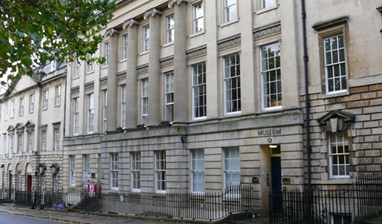
Bath Royal Literary & Scientific Institute
The Bath Royal Literary & Scientific Institute (BRLSI) was founded in 1824 as a place to promote the advancement of Bath’s science, literature, and art. It is located in a Grade I listed building at 16-18 Queen Square, Bath, BA1 2HN, just a short 5-minute walk from the main town centre.
The museum at the BRLSI contains around 150,000 objects spanning palaeontology, geology, natural history, and archaeology. Notably, within the palaeontological collection, BRLSI houses over 4,900 specimens belonging to the Charles Moore collection. Amongst these are exceptionally well-preserved fossils from the Toarcian of Strawberry Bank.
The Symposium on Toarcian Palaeobiology will be held across multiple rooms at the BRLSI. The main scientific sessions will be held in the Elwin Room. The poster session and workshops will be held in the Lonsdale Room. The opening reception will be held across the Lonsdale Room and the Duncan Room.
Prior to the start of the conference delegates my wish to visit the museum on the ground floor at the BRLSI which has an extensive museum featuring collections of geology, palaeontology, mineralogy, natural history, and human history including archaeology. The museum is open daily from 10:00 - 16:00 BST and admission is free. This summer the museum is celebrating it’s 200th anniversary and will have a special exhibition to reflect this.


Conference dinner
The conference dinner will be held at the fabulous Architect restaurant at The Empire Hotel. Built in 1901, this Grade II listed building overlooks the River Avon. The Architect is a short 9-minute walk from the BRLSI. The Empire Orange Grove Orange Grove, Bath BA1 1LP.
Conference banquet
The conference banquet will be held on the evening of Wednesday 19th June at The Architect at The Empire Hotel. It will be an additional payment of £37.50. The dinner will include a three-course meal including vegan and gluten-free options. Please notify us of any additional dietary requirements upon registration. Drinks are not included; these can be purchased at the bar on the day. The dress code is smart casual clothing.
Spaces for the conference dinner are limited to 50. Once you have registered you will be sent a link to fill out your dinner preferences. These, and final dinner ticket purchases must be made before the 5th June. For those not attending the Strawberry Bank workshop on Thursday 20th June we hope that this banquet will be a fitting end to the conference.
Menu
Starter
Char-grilled bruschetta, burrata, oven-dried tomatoes, olives and basil pesto (v)
Smoked haddock kedgeree arancini, curry sauce, mango salsa (gf)
Mini lamb and rosemary pie, pea purée, red wine jus (gf)
Mains
Pea and mint tortellini, vegan parmesan crisp, garden pea velouté (vg)
Poached salmon salad, beetroot, asparagus, sugar snaps, tender stem, soft boiled egg (gf)
Roasted chicken breast, charred corn, potato rosti, air dried ham, roast chicken gravy (gf)
Desserts
Chocolate and cherry tart, boozy cherries, cherry sorbet (vg)
Mascarpone and lemon cheesecake, raspberry sorbet (v)
Apricot and almond tarte tatin, vanilla ice cream, apricot sauce (v)
Visiting Bath
Located in the county of Somerset in the southwest of England, Bath is an ancient city established by the Roman Empire 2000 years ago. Famous for its Roman geothermally heated spas, Bath was inscribed as a UNESCO World Heritage Site in 1987. Bath is also famous for its Georgian architecture, and in recent years has reestablished itself as an international travel destination thanks to the hit Netflix series Bridgerton which is filmed in the city. More about Bath can be discovered at https://visitbath.co.uk/.
Getting to Bath
Bath is fairly well connected to the rest of the country with multiple options via road, rail, and air.
By road
Bath is a very busy tourist city, and we cannot guarantee that all roads will be open during the summer. We recommend not driving to Bath unless absolutely necessary. A clean air zone (CAZ) is in operation in Bath city centre and includes the streets around the BRLSI, therefore a daily charge may apply. Find out more at https://beta.bathnes.gov.uk/bath-clean-air-zone.
From the north take the M5 from Birmingham. At junction 15, take the M4 (E) exit towards London/Bristol (C)/M32. Merge onto the M4. At junction 19, merge onto M32 towards Ring Rd/A4174/Bristol (C). At junction 1, take the A4174 exit to Ring Rd. Continue on A4174. Take B4465, Siston Ln, A420, Bath Rd and Lansdown Rd towards Bath city centre.
From the west follow the M4 from Wales. At junction 19, merge onto M32 towards Ring Rd/A4174/Bristol (C) and follow the route above.
From the east follow the M4 from London. At junction 17, take the A350/A429 exit to Chippenham/Cirencester and follow the A350. At Chequers Roundabout, take the 4th exit onto Bath Rd/A4. At London Rd Jct, take the 1st exit onto London Rd W/A4 towards Bath city centre.
From the south follow the M5 from Exeter. At junction 16 use the left 2 lanes to take the M4 (W) exit towards South Wales/Chepstow /M48/London. Follow the route above.
The closest car park to the BRLSI is the Charlotte Street Car Park which is a two-minute walk away. This is open 24 hours with no maximum stay. Parking charges apply and are based on the emissions of your vehicle. Electric vehicle charging is also available at a cost. Information about parking charges can be found at https://beta.bathnes.gov.uk/charlotte-street-car-park-bath.
Charlotte Street, Bath, BA1 2NE
Coach options to Bath are also available with National Express. These run hourly from London Victoria Coach Station and every two hours from London Heathrow
T2 & T3. The X39 First Buses service runs from Bristol bus station and Bristol Temple Meads train station up to four times an hour. All bus options come into Bath bus station which is an approximate 11-minute walk from the BRLSI.
Bath Bus Station, Southgate Street, Bath, BA1 1TP
By rail
Trains run daily to and from Bath Spa train station. Great Western Railway manages a service to Bath Spa which runs approximately every half hour from Cardiff Central, up to five times an hour from Bristol Temple Meads, and hourly from Portsmouth Harbour. An additional service to and from London Paddington, Reading, and Weston-Super-Mare runs hourly to Bath Spa.
Bath Spa train station is an approximate 13-minute walk from the BRLSI.
By air
There are multiple airports in the south of England which will be relatively easy to get to Bath from.
London Heathrow is the UK’s largest airport. The simplest way to travel to Bath from London Heathrow is via National Express coaches outlined above. By rail, the Elizabeth line in London is a new high-speed tube network. This line is purple on a tube map. The route with the fewest changes involves taking the Elizabeth line and changing at London Paddington and then taking the train to Bath. To avoid central London, take the same eastbound Elizabeth line towards London Paddington but change at Hayes & Harlington. Take the westbound Elizabeth line to Reading, and then catch the train from Reading to Bath.
Birmingham airport receives flights from many European countries. The easiest way to get to Bath is by rail from Birmingham International train station which serves the airport. Take the train towards Bournemouth and change at Reading. Alternatively, you can travel from Birmingham International to Birmingham New Street and change to a service which runs to Bristol Temple. From here change to a service which runs to Bath Spa.
Bristol airport is the closest airport to Bath. The easiest way to get to Bath is to take the A4 Air Decker bus from Bristol Airport Bus Station to Bath city centre. This runs hourly and drops you off at Dorchester Street, directly outside Bath Spa station. Alternatively, the Airport Flyer bus from Airport Terminal (Stand 1) runs a service to Bristol Temple Meads where you can change onto a train to Bath.
Local bus services
Once you arrive in Bath you may wish to take local bus services to the BRLSI. Most services depart from Bath bus station located on Southgate Street. The 5 Bathcity and 1 Bathcity services depart from Bath bus station stand 13 every 7 minutes. Alight at James Street West and walk four minutes to the BRLSI.
The X39 aquae, 4 Bathcity, number 4a, and number 19 services all run from Bath bus station stand 11 every 8 minutes. Alight at Monmouth Place and walk 3 minutes to the BRLSI.
Sponsors
We are grateful for the following sponsors for providing financial support for travel bursaries:
The Palaeontolographical Society
The committee would also like to thank Emma Nicholls, Simon Harris, Rob Lowther, Cindy Howells, Paul Browne, and James Hamilton for help with logistics.
We thank James McKay and Alan Haywood for permission to use some images in the banner for this meeting.

